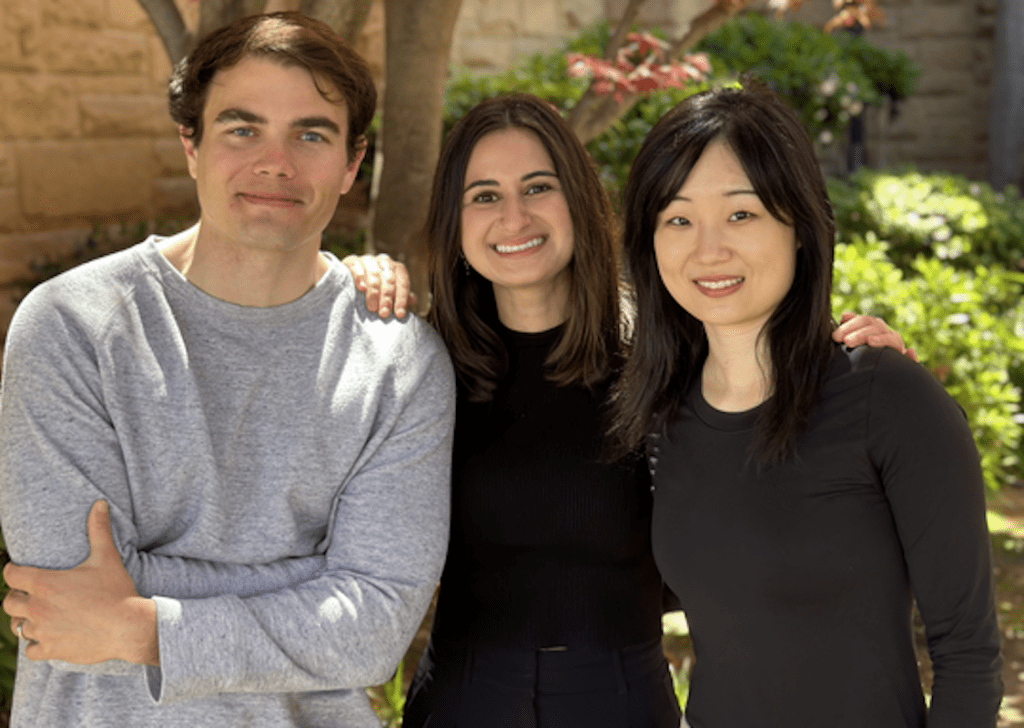Y Combinator is renowned in Silicon Valley for a lot of reasons, but there’s one service that has quietly become one of its most powerful: an online founder-matching tool.
“I think this is the most valuable digital product that YC has built (i.e. more valuable than Bookface, etc.). It’s astonishing how many founders I meet who met each other on the YC co-founder matching platform,” tweeted seed investor Nikhil Basu Trivedi. (Bookface refers to YC’s famed online collection of how-to startup advice for its program participants.)
Recent Y Combinator grad Hona is an example, although its founders’ meet-cute story is a bit more exciting than just using that tool.
Hona is a GenAI medical records startup. It integrates into multiple electronic records systems and then summarizes a patient’s medical records, helping doctors prep for the patient’s visit.
It was initially founded by two friends who have known each other since middle school, Danielle Yoesep and Adam Steinle. They reconnected after graduating college and respective early careers in tech and biotech. Steinle had been a biomedical engineer, Goldman banker and big tech product manager at Facebook. Yoesep was a scientist for a biotech startup that had just been acquired. They were hanging out with their high school friends while home for Thanksgiving, chatting about wanting to do a startup when the idea for Hona arose. While neither of them are doctors themselves, both had family members who are doctors or in healthcare and they soon settled on an idea: AI to assist doctors with patient data summaries.
They knew they needed an AI specialist co-founder, so signed up on the Y Combinator Co‑Founder Matching Platform. They found one in Shuying Zhang, who also knew she wanted to do a startup, something in healthcare and AI, and had signed up on the service. Zhang’s background combined biomedical engineering and software development, most recently working on AI at Google, and she was at Amazon prior to that.
What came next was a process that sounds a bit like Tinder for co-founders.
Yoesep and Steinle swiped through profiles in the matching tool as did Zhang. Each of them held several meet-and-greets with potential co-founders. When Zhang met with Yoesep and Steinle, they instantly clicked so well that the long-time friends offered Zhang a full one-third share of the company.
“We literally met each other and like three weeks later, we’re jobless, trying to build this,” Steinle told TechCrunch.
Having met on Y Combinator, with their backgrounds in tech, they were exactly the type of startup sure to be accepted into the competitive program. They immediately applied to YC for the Summer 2023 batch.
And they were promptly rejected.
So they got to work on their own, building a prototype, showing it to their network of doctors, earning solid reviews and raising a small seed round.
About four months later, they applied to YC again for the winter 2024 batch, and were accepted. One of the reasons they got in the second time, Yoesep recalled, was that they never changed directions, or never pivoted, to use the hackneyed Silicon Valley term. Another reason was “because of our dynamic during our interview, showing that we had grown close and enjoyed working together,” she said.
Things started cooking for them after that. Medical doctors at Duke and Harvard agreed to test the product and write a white paper, due to publish later this month. Some angels who were known in the tech and biotech worlds invested. And by the time Hona graduated from YC and did its famed Demo Day, it had already raised a $3 million seed round from General Catalyst (which is pursuing health tech so seriously it bought a hospital system), Samsung, Rebel Fund (founded by Reddit co-founder Steve Huffman and Cruise co-founder Daniel Kan), Allegis Capital and 1984 Ventures.
Hona still has a tough road ahead. AI for medical transcription is an increasingly crowded field. Big cloud providers like Google and Amazon are offering such tools and dozens of startups are tackling it, too.
But Steinle says that Hona will compete because it’s “super customizable” to search through medical records for the specific data a particular doctor needs prior to seeing a patient. A cardiologist would get a different summary than a nephrologist. For instance, the upcoming white paper is on kidney stone referrals, so “so we’re pulling stuff like how many millimeters was the stone on the right here?” Steinle describes.
As for Zhang, her advice for others who dream of doing a startup, and are considering using YC’s matching tool, is to “just go out and try,” she says. “Once you start working with people, you will quickly have a good sense whether you get along. You will know right away.”






